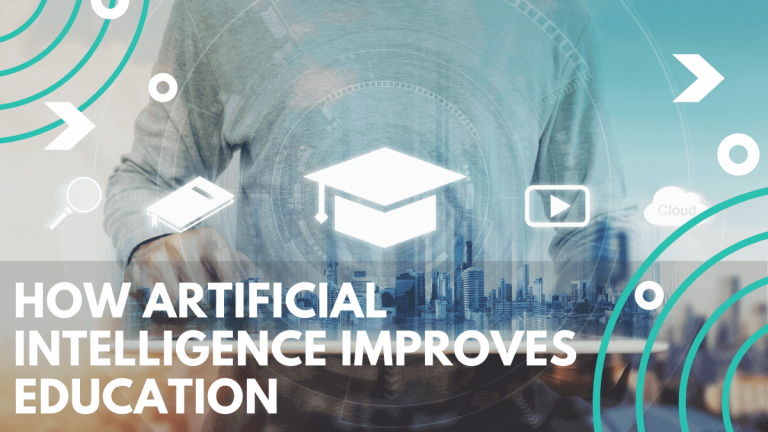

What’s one thing that business, IT companies, financial services, and even education, have in common? These are all industries being improved by the integration of Artificial Intelligence.
Artificial Intelligence is a branch of science producing and studying the machines aimed at the stimulation of human intelligence processes. The main objective of AI is to optimize routine processes, improving their speed and efficiency.
The digital nature and dynamic growth of AI offers far more opportunities for engagement, than more traditional forms of communication. Constantly learning, this technology has the potential to boost learning and discovery, and help with making breakthroughs in whatever field it is being used.
AI in Education
While AI is not a new thing, the first research in the field began all the way back in the 1940s, it is still a relatively new trend in the field of education. The adoption of modern technologies in education is revolutionizing, and will continue to revolutionize, how students are being taught in schools.
The main advantage AI brings, is the ability to personalize education for each individual student, so that teachers can help them cover all their weaknesses. Due to its nature of always learning, AI is able to analyze a student’s work, and identify patterns that may indicate potential weaknesses, which brings us to the first way AI is used in education.
Personalization
Artificial Intelligence is able to identify what a student knows and does not know, locating gaps in their knowledge, allowing for the creation of personalized study schedules designed to help them fill in these gaps. Educational tech companies train their AIs to define concepts, and to possess the ability to identify whether or not a student fully understands said concept.
While this can be difficult, as many concepts in education are quite complex or interrelated, the technology has now progressed enough that it is very doable. This helps make studying far more efficient than traditional classrooms have ever been able to.
Smart Content
One of the most popular trends in AI, the ability to create smart content has proven to be quite important. AI can produce content with the same, or greater, grammatical prowess as most humans.
This can be used to create guides for textbooks, or infinite digital learning content, as AI can be programmed to monitor any new advancements to make content.
AI can produce digital learning interfaces with a high degree of customization, fit to suit any number of situations, and can keep updating existing lesson content to keep it up to date.
Automation
Grading homework and tests for large numbers of students can be tedious and time consuming work. Even in lower grades, teachers often find that grading takes up a significant amount of time, time that could be put to better use interacting with students, preparing for class, or working on professional development.
While AI may not ever be able to truly replace human grading, it’s getting pretty close. It’s now possible for teachers to automate grading for nearly all kinds of multiple choice and fill-in-the-blank tests, with automated grading of student writing not too far behind.
Essay grading software is still in its infancy, yet it will improve over the coming years, allowing teachers to focus more on in class activities and student interaction, than grading.
Support for Students
While AI technology has not progressed to the stage where it can completely replace teachers, that doesn’t mean it’s entirely useless in this regard. AI can be used to relay fundamentals and basic concepts to students.
These AI programs do not yet possess the capacity to teach things like creativity or critical thinking, which still require a teacher to be present.
However, given the rapid pace of technological development, it is not too farfetched to thing that AI teachers will soon be able to do these things as well. In the future, we could see more schools and tuition services using AI in the role of the teacher.
Feedback
Not only does AI help teachers and students to craft courses that are customized to their needs, but it can also provide feedback to both about the success of the course as a whole.
Some schools, especially those with online offerings, are using AI systems to monitor student progress, and to alert professors when there might be an issue with student performance.
These kinds of AI systems allow students to get the support they need, and for professors to find areas where they can improve instruction for students who may struggle with the subject matter.
AI programs at these schools aren’t just offering advice on individual courses, however. Some are working to develop systems that can help students to choose majors based on areas where they succeed and struggle.